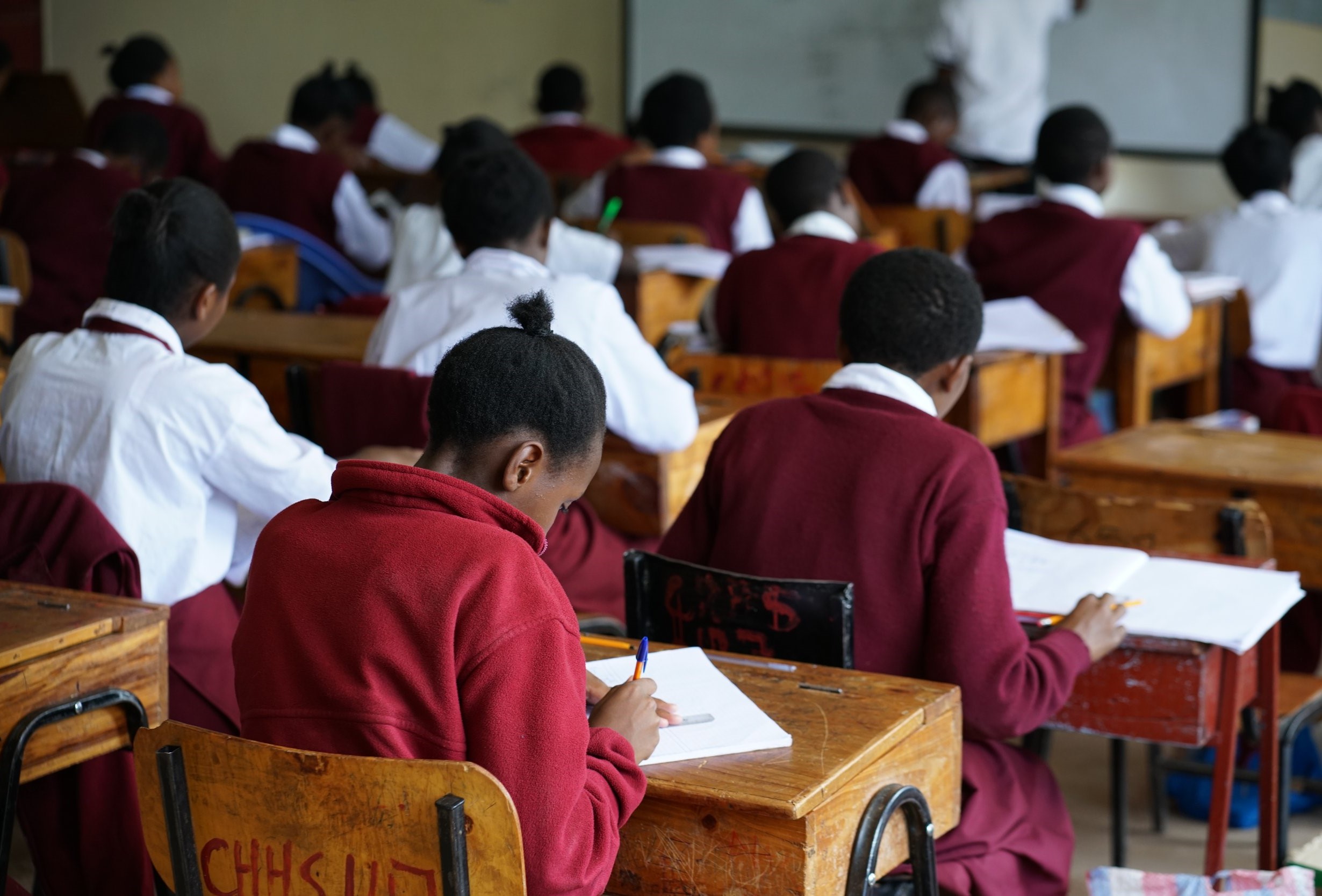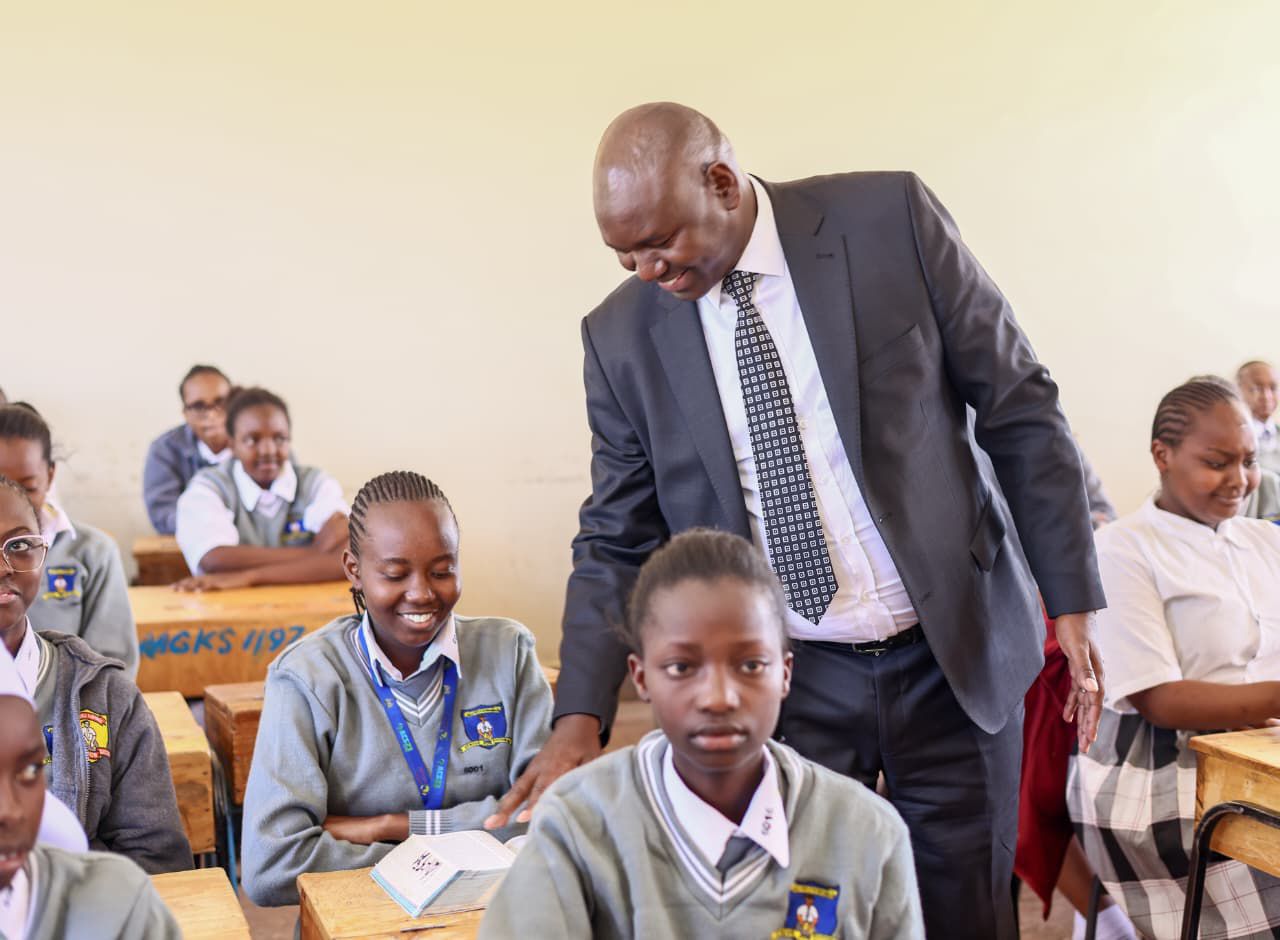Ambassador Professor Julius Kibet Bitok stands at the forefront of Kenya’s educational transformation, navigating a complex system of reforms, infrastructural gaps, and institutional challenges. As Principal Secretary for Basic Education, his tenure is defined by a relentless pursuit of modernisation, accountability, and equity.
Holding a PhD in Business Management from Oklahoma State University, USA, Prof. Bitok brings extensive experience in finance, trade, public policy, and governance. Beyond his professional roles, he is the founder of the Amb. Prof. Bitok Foundation, which supports orphaned and disabled children, reflects his deep commitment to marginalised communities.
Since taking office, Prof. Bitok has championed a comprehensive digital transformation aimed at improving efficiency and transparency in the education sector. A flagship initiative is the Maisha Card, a digital tool designed to streamline school administration and ensure the timely and transparent disbursement of capitation funds.

These reforms aim to reduce wastage and ensure that resources reach learners directly, improving accountability and service delivery.
Prof. Bitok has also driven the implementation of Competency-Based Education (CBE), emphasising that the shift is not just a curriculum adjustment but a holistic transformation of Kenya’s education system. Universities, teacher training colleges, and curriculum development agencies are aligning their frameworks to accommodate the first cohort of CBE learners, who are expected to join higher education by 2029.
This includes scaling up teacher retooling programs, with hundreds already trained and plans for nationwide expansion. The reforms also focus on adult education and lifelong learning, ensuring that skills training is relevant, inclusive, and aligned with market needs.
READ ALSO:
New Sh3.6 million dormitory brings smiles to Iiani-Kivaa Hearing Impaired School in Machakos
Teacher training remains central to Prof. Bitok’s strategy. Recognising that educators are the backbone of CBE, he has prioritised continuous professional development to equip teachers with the skills necessary to deliver a modern, competency-based curriculum. Infrastructure development has accompanied these reforms, with the introduction of new classrooms, enhanced learning materials, and the integration of technology aimed at ensuring equitable access for learners, including those from marginalised and special needs communities.
Despite these significant strides, challenges remain. Delays in capitation fund disbursement due to exchequer constraints have occasionally disrupted school operations. Staffing gaps continue to affect service delivery, prompting Prof. Bitok to commit to hiring 116,000 teachers by 2027.
His tenure has also faced tension with education workers, particularly following threats to dismiss teachers and Sub-County Directors of Education over inaccurate enrollment data. Teacher unions, including KUPPET and KNUT, argued that the Ministry lacks the mandate to discipline educators, highlighting the delicate balance between accountability and collaboration.
Prof. Bitok’s leadership is characterised by a combination of innovation, decisiveness, and negotiation. He actively engages with education workers to implement reforms while maintaining high standards of professionalism. His work reflects both the trust and expectations placed on him by the state to deliver meaningful, sustainable change in a complex sector.
Through digital innovation, strategic initiatives, and a focus on equity, Prof. Julius Bitok is driving measurable improvements in Kenya’s education system. While challenges persist, his proactive and holistic approach demonstrates a commitment to building a transparent, efficient, and learner-focused sector that equips young Kenyans with the skills and opportunities they need to thrive in the 21st century.
By Hillary Muhalya
You can also follow our social media pages on Twitter: Education News KE and Facebook: Education News Newspaper for timely updates.
>>> Click here to stay up-to-date with trending regional stories
>>> Click here to read more informed opinions on the country’s education landscape
>>> Click here to stay ahead with the latest national news.






